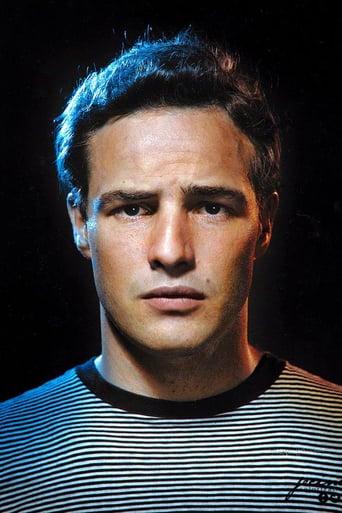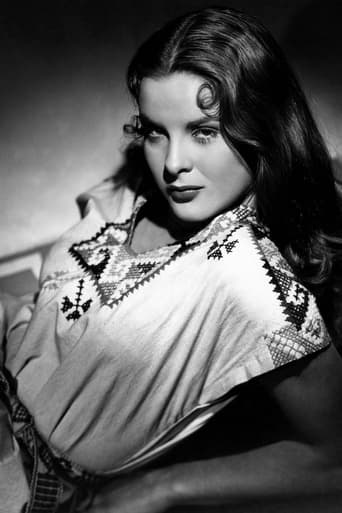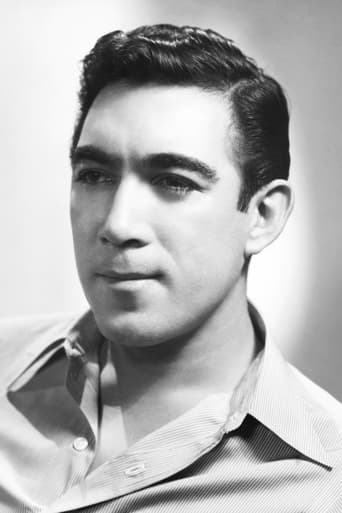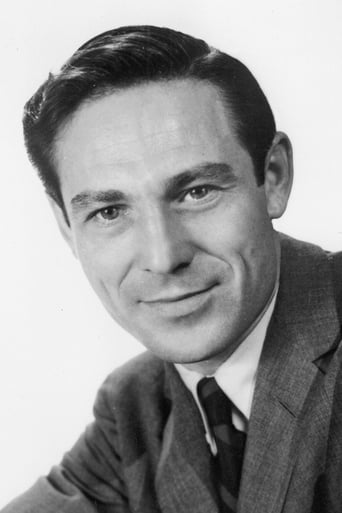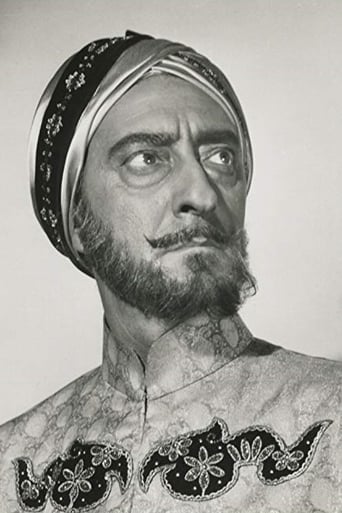grantss
Mexico, 1909. The people in the state of Morelos rise up against the tyrannical regime of President Porfirio Diaz. They are lead by a simple, illiterate peasant-farmer, Emilio Zapata. All he wants is justice and fairness for his people but as things progress he is drawn deeper into a civil war where allies and enemies are often difficult to tell apart.Written by John Steinbeck, directed by Elia Kazan, starring Marlon Brando and Anthony Quinn, and based on a true story, on paper this has all the makings of a classic. The end result, however, is far from satisfactory.The intention was good: show the life of a man of integrity and honour and the lengths he is willing to go to for the rights of his people, throw in a theme of how power corrupts, plus another theme of how a name can sustain a revolution. Can't fault the performances either. Brando, in his third movie, puts in a strong performance as Zapata. The movie provided him with his second Oscar nomination, after only three movies (his first was in A Streetcar Named Desire, his second movie). Anthony Quinn won the Best Supporting Actor Oscar in 1953 for his portrayal of Eufemio, Zapata's brother.No, it is in the execution, especially direction and editing, that things fall a bit short of their potential. The story is clumsily told by Elia Kazan. Scenes don't link well, some scenes seem entirely unnecessary and it is difficult to follow the history behind the sequence of events. No explanation is given for the seeming lack of continuity, eg Zapata is President, all seems well, then next we know it is back to civil war with Zapata a revolutionary. No detail for the change provided.This sudden change of direction, without the events that changed the direction, is incredibly jarring and disconcerting.So, in the end, you have a historic story with many of the historic details left out. Not ideal.Overall, okay, but not great. While Elia Kazan was a great director, I can't help but think this movie would have been a masterpiece if someone like John Huston, or maybe John Ford, had directed it.
ElMaruecan82
Surprisingly introspective and frustratingly 'quiet', "Viva Zapata!" contains more talking and less fighting than what its exclamatory title suggests. But it might not come as a surprise for a film written by John Steinbeck and directed by Elia Kazan : through the portrayal of Emiliano Zapata, the legendary Mexican revolutionary played by the no-less legendary Marlon Brando, it's the very notions of power and leadership that are questioned, much more their corruptive effect.And the result is a strange mixture of conventional Western-like escapism with the local texture provided by sombreros, white outfits for men and black dresses for women and more ambitious attempts of a character study. I particularly like the scene where a group of peasants come to ask the President of Mexico to help them and get treated with patronizing contempt ("my children" repeats President Diaz) until Zapata with quiet and confidence emerges from the crowd, asks the right questions, earning the attention of the elderly leader.At first, Brando strikes as an odd choice, with this constant expression of so non-leader-like puzzlement he carries in his eyes, but that's the way Brando 'felt' Zapata, an enigmatic and somewhat tortured man. He takes a courageous distance from the archetypal flamboyant hero, illuminating his character with a very odd modernity, even at the risk of being boring sometimes, the whole "I can't read" subplot was too underdeveloped to be of any use for the film and toned down some moments of relief the film needed.And it's not totally wrong to assume that Anthony Quinn, who was more ethnically fitting, would have made a more believable, if not better, Zapata. After watching the film for the third time, I must say that the casting of the two brothers is perfect. Brando was made to play ambiguous characters, never satisfied with any achievement because of an obsessive capability to look beyond his own existence while Quinn, with his Latin charisma had to be the Yang to Brando's Yin : a colorful, larger-than-life, more human but no less flawed character.As Eufemio Zapata, Quinn is not just the brotherly right hand's man; he's also the counterpart to Emiliano's personality. After all the fights, and all of the corruptions' attempts, he wants to retire like a general, with all the honors and awards. He embodies the path his brother refused to take in order to let the governors govern… and people being governed. Anyone with a basic knowledge of Machiavelli would know the implications of a leader bribing a general, and much more a general refusing to be bribed because it contradicts the values and ideals he stand for.Yet the power of the film isn't to romanticize Zapata, but to assess his constant status as an outcast. During one of the film's best scene, he unconsciously dismisses peasants just like Diaz did. He doesn't "my children" them, but his "it'll take time" earned him the same answer he gave years before : you can't plant corn on patience. Zapata understands the inner corruption of power from the way he became and his preoccupations are soon confirmed when he confronts his brother, a decadent 'general' outrageously spoiling people from lands and wives."Viva Zapata!" is never as interesting as when it questions the notion of power and its influence of men, and the interaction between Brando and Quinn, followed by another powerful moment with his wife, played by Jean Peters, reveal the true self-perception of Zapata, not a leader but more of a catalyzing force. Wealth and honor don't interest him, because he learned from the arrogance of his father-in-law that these considerations poison a man's value. What matters is that people are aware of their power, the irony is that after his death, peasants in a poetic denial still consider him as the true leader, and much alive prophet, the white horse hiding in the mountains.That's the reality Zapata failed to perceive, people need a leader for their own good, otherwise, like Fernando Aguirre (Joseph Wiseman) warned him: someone else will come, nature hates emptiness. Many political convictions confront one another in the film, Diaz as the patronizing patriarch, the old general treating the well-meaning reformer like a puppet, while Fernando is the cunning tactician, with no roots, no other goals in life than power in the most absolute meaning. Men like Zapata and his people can only think in terms of land, of food, of survival and this attachment to the most basic values of life is their strength… and their curses.A paradox indeed, but that's what Zapata is, he strikes as an idealistic figure but like his friend Pablo says, what good can come from a man who endures such hardship, how can peace can even be salutary for such a mind. This brilliant exchange reveals perhaps Zapata's most heroic trait: his detachment. Zapata dismisses the very idea of being a strong man, for it applies that without him, people will be weak. And maybe it's this detachment that deprived the film from the required battle scenes, as if it tried to exhilarate the pride the legendary General inspired in this people, rather than true and palpable achievements. Kazan's directing is intimate in most cases, as if Zapata himself was reluctant to forge a legend out of his character, well, he obviously failed.My only regret is that some abrupt ellipses leave many holes in the narrative, we never know exactly what happened between scenes, or we're never sure about the people they're talking about, but Brando and Quinn's performance (Oscar-winning for the latter) and the intelligence of the script, redeems these little weaknesses, although the film isn't on the same caliber than the two Kazan's masterpieces, both starring Marlon Brando, "A Streetcar Named Desire" and "On the Waterfront" and will forever live under their glorious shadow.Still, as far as Cinema is concerned, I would always say Viva "Viva Zapata!"
MartinHafer
If it weren't for yet another weird casting decision, I might have scored this film even higher. Who else but Hollywood would not cast a charismatic half-Mexican-American (Anthony Quinn) in the supporting role instead of in the lead? And who would cast a white bread guy like Marlon Brando as a Mexican revolutionary?! Remember--this is the same group of folks who cast a man of Swedish descent (Warner Oland), Mickey Rooney AND Marlon Brando all as Asians?! Now I am not saying Brando did a bad job--he was quite good. But why not cast a Hispanic man in the role?! If you can ignore the odd casting, the rest of the film is pretty good and a decent overview of part of the Mexican Revolution. I say part because Emeliano Zapata only led part of the revolutionary forces--other leaders like Huerta and Villa are barely mentioned in this film. Now this is no complaint--just letting the viewer know it's only a portion of what happened in the war. But as far as Zapata's career as a revolutionary goes, it is pretty good--sticking reasonably close to the facts and explaining his peasants' campaign for land reform reasonably well. And, with writing by John Steinbeck and direction by Elia Kazan (a great director, by the way), it's not surprising this film is far better than average. Well worth seeing and quite inspiring.



